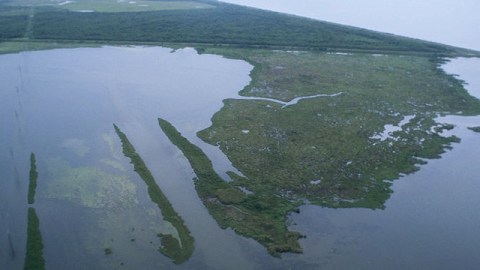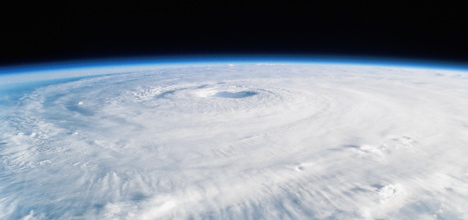What If the Spill Isn’t As Bad As We Thought?

Michael Grunwald wrote in Time yesterday that the Deepwater Horizon oil spill might not be as disastrous as we thought. It’s not that it hasn’t had some serious consequences, obviously. The effect on the remaining population of endangered Kemp’s Ridley turtles is in itself a tragedy. And Grunwald is careful to say that it will be years before we know the long-term effects of either the oil that poured into the Gulf of Mexico or the dispersants we used to break it up. Nevertheless, the oil spill seems to be disappearing fairly quickly. And Grunwald argues that so far the damage has not been as bad as we feared. For all the ghastly pictures of oiled sea-birds, the spill seems to have had much less of an effect on local wildlife than the Exxon Valdez disaster did two decades ago. Assessment teams have found just 350 acres of oiled wetlands, which is just a small fraction of the wetlands we lose every year as it is.
Many environmentalists reacted with outrage. In Mother Jones, Kate Sheppard accuses Grunwald of “running defense” for BP and calls his argument “premature.” In Grist, Brad Johnson calls it “preemptive” and says that “the only honest take” is that the spill has been a calamity.
I have no real idea whether Grunwald is right or wrong. It’s certainly fair to point out, as Johnson does, that satellite photos appear to show that the slick is still fairly large. But Grunwald—who is an old friend of mine—is hardly an oil industry shill. On the contrary, he is known among environmentalists for his work detailing the appalling damage Army Corps of Engineers’ projects have done to wetlands around the Gulf. Nor is he suggesting that the spill has done no damage at all, or that we should rest completely easy. All he is saying is that so far the damage has been relatively limited. So why accuse him of dishonesty or of apologizing for BP? And why is it more premature to argue that the spill may turn out not to be as bad as we thought than it is to declare that it’s an unprecedented disaster?
There’s a double standard at work here. It’s okay to say the spill is a disaster, because that fits the preconceptions many of us had. But drawing any conclusion other than the one we’ve already jumped to is premature. It’s not that we actually want the spill to be such a disaster, but rather that by being a disaster it confirms our suspicions about the dangers of drilling. For the spill not to prove to be a calamity—considering the corruption, incompetence, and greed that led to it—would seem to teach us the wrong moral lesson.
Make no mistake: if it does turn out that the damage is not as bad as we feared, that doesn’t let BP off the hook or our justify our poorly-conceived energy policy. We will have—thanks to the particular currents and the type of oil involved—gotten lucky. There is still plenty of reason to worry about the consequences of off-shore drilling. The spill should still be a wake-up call. But we shouldn’t write off evidence that doesn’t fit our preconceived notions too quickly. When those of us who care about the environment overstate the case for protecting it, we only end up weakening that case.




